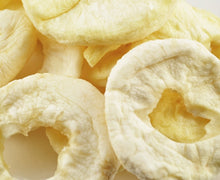
When fruit is in abundance at harvest time it’s great to eat it fresh but don’t be afraid to eat the dried variety when it’s out of season. That’s because researchers from Penn State University found people who ate dried fruit like raisins and apples were generally healthier and had higher levels of key nutrients than those who did not eat dried fruits, even though they consumed more total calories.
"Dried fruit can be a great choice for a nutritious snack, but consumers might want to be sure they're choosing unsweetened versions without added sugar," researcher Valerie Sullivan said. "Portion sizes can also be tricky, because a serving of dried fruit is smaller than a serving of fresh since the water has been taken out. But the positive is that dried fruit can help people potentially consume more fruit because it's portable, it's shelf-stable, and can even be cheaper."
Sullivan and her colleagues used data from more than 25,000 participants in the National Health and Nutrition Examination Study. Participants were surveyed on the foods they consumed and they were assessed on overall diet quality as well as measured for elements of cardiometabolic health.
The ones who consumed dried fruits generally had healthier diets than those who did not. They also had on average a lower body mass index, smaller waist circumference and lower systolic blood pressure.
The participants who reported eating dried fruits were also analyzed on days their diets did not contain dried fruits and the results were compared.
"What I also found interesting was that people tended to eat more total fruit on the days they ate dried fruit than on days they didn't," Sullivan said. "On days when dried fruit was not eaten, however, fresh fruit intake was not higher. So dried fruit could be a way to boost overall fruit intake in people that aren't eating the recommended amounts."
Previous research revealed a poor diet is linked to cardiovascular disease and the lack of fruit intake is a contributing factor. Fruit provides an abundance of key nutrients and heart-healthy bioactive compounds as well as fiber. Despite that, fruit is not a choice for many and researchers are hoping these study findings can help promote dried fruit as an alternative when fresh fruit is not available.
"Minimally processed forms of fruit, including frozen, canned, and dried, have some advantages over fresh fruits," said researcher Kristina Petersen. "They are available year round, are relatively consistent in quality, and can be stored for far longer than fresh. Many are also less expensive per serving than their fresh counterparts."
One concern for researchers was the increase in total carbohydrates and calories on the days the participants reported eating dried fruits.
"In our study, people who consumed dried fruits had a higher calorie intake but a lower BMI and waist circumference which suggests they were more physically active," said researcher Penny Kris-Etherton. "So, when incorporating dried fruits, pay attention to calories and be sure to substitute out calories from low-nutrient foods for dried fruits to get the greatest benefit of eating dried fruits."
Click here to read more in the Journal of the Academy of Nutrition and Dietetics.



